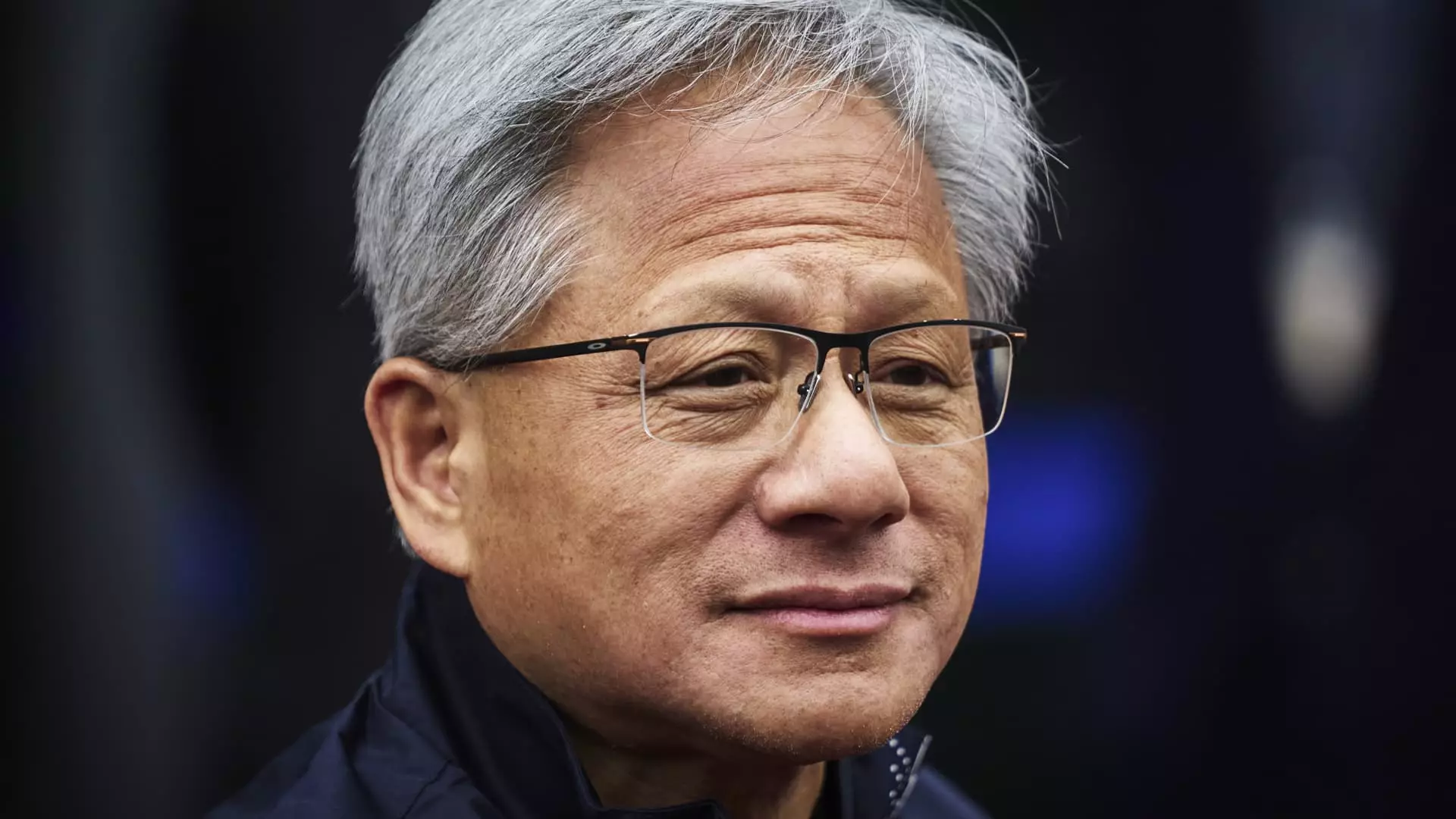In the complex tapestry of global technology and geopolitics, few stories resonate like Nvidia’s ongoing struggle with export regulations and their implications for U.S. national security. This week, the tech giant admitted it would be burdened with a staggering $5.5 billion in costs over canceled orders for its H20 chip. This revelation came on the heels of new U.S. government mandates that stipulate these chips require a license for export to China. What made this scenario all the more striking was Nvidia’s insistence that they follow government regulations “to the letter,” showcasing a protective yet somewhat defensive stance against increasing scrutiny.
The Balancing Act of Compliance and Innovation
Nvidia’s deep entrenchment in national security discourse is indicative of broader dilemmas facing technology companies today. On one hand, they are pioneers in the realm of artificial intelligence, a field burgeoning with potential for economic growth and innovation. But on the other, as technologies evolve and threaten to outpace regulation, firms like Nvidia find themselves walking a tightrope. The introduction of the H20 chip, specifically designed to toe the line of U.S. export controls, illustrates how innovation has become tangled in a web of regulatory constraints.
The company’s resilience lies not only in its technological advancements but also in its adherence to government directives, albeit with a palpable touch of frustration. By framing its business operations as compliant with U.S. law, Nvidia aims to quell fears that its products could undermine American technological superiority or national security. Yet, this prudent response does not disguise the uncomfortable fact that many in Washington view exports to China as a double-edged sword.
Market Dynamics and Political Fallout
The stock market reacted sharply to Nvidia’s admission, with shares plummeting nearly 7% in a single day. This decline underscores the real financial risks tied to rapidly shifting regulatory landscapes. Increasing scrutiny from a House Select Committee investigating potential national security threats related to sales of the H20 chip to China further complicates matters. Just as the company was positioning itself as a defender of American interests, the climate of distrust that permeates U.S.-China relations loomed large.
Worryingly, the S-curve of technological development may also face interruptions as Nvidia and its counterparts tread carefully in uncertain waters. The irony that the H20 was legal for export until recently— now labeled a “loophole” by legislators— exposes the delicate ecosystem of compliance and innovation. Basics like fair competition could easily become casualties if businesses feel compelled to excessively conform to government dictates, stifling a culture of risk-taking that has historically fueled American technological advancements.
Taxation, Employment, and Trade Deficits: A Strategic Defense
Nvidia’s statement also attempted to paint a broader picture of its contributions to national welfare. By highlighting aspects such as the taxes it pays, the employment opportunities it generates, and the vital role its technologies play in stabilizing the trade balance, Nvidia seems to be rallying support not just from consumers, but from the very government agencies scrutinizing its practices. “NVIDIA protects and enhances national security by creating U.S. jobs,” they assert—an eye-catching sentiment designed to appeal to a government increasingly concerned about trade deficits.
This argument, while impressive, runs the risk of becoming a mere talking point if not met with tangible action. The dual necessity of fostering innovation and complying with restrictive regulations may threaten to fracture Nvidia’s position in the marketplace, leaving it vulnerable to competitors willing to take greater financial risks. The looming “AI diffusion rules,” which promise additional restrictions, make the stakes even higher.
Global Markets and Internal Challenges
Another layer of complexity arises from Nvidia’s significant sales in Singapore, which accounts for nearly $24 billion, according to their recent fiscal filings. The government is scrutinizing whether banned chip exports managed to slip through these channels, stirring fears of indirect facilitation of technology theft or military enhancements in adversarial hands. Nvidia’s insistence that these sales primarily involve U.S. subsidiaries helps stave off some concerns, yet the ambiguity surrounding global supply chains casts clouds of uncertainty over their operational integrity.
Overall, Nvidia encapsulates a defining moment in the intersection of technology and geopolitics, one where innovation meets the harsh reality of regulations. The ongoing debates around exports, national security, and corporate responsibility reflect a larger narrative of American interests grappling with the forces of globalization. For Nvidia, $5.5 billion in losses represents not just financial implications, but a clarion call to reassess the ever-complicated relationship between innovation and compliance.

